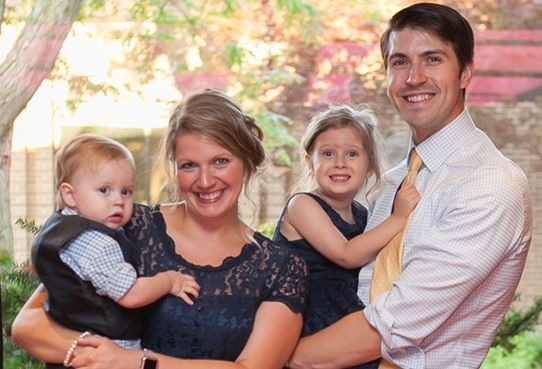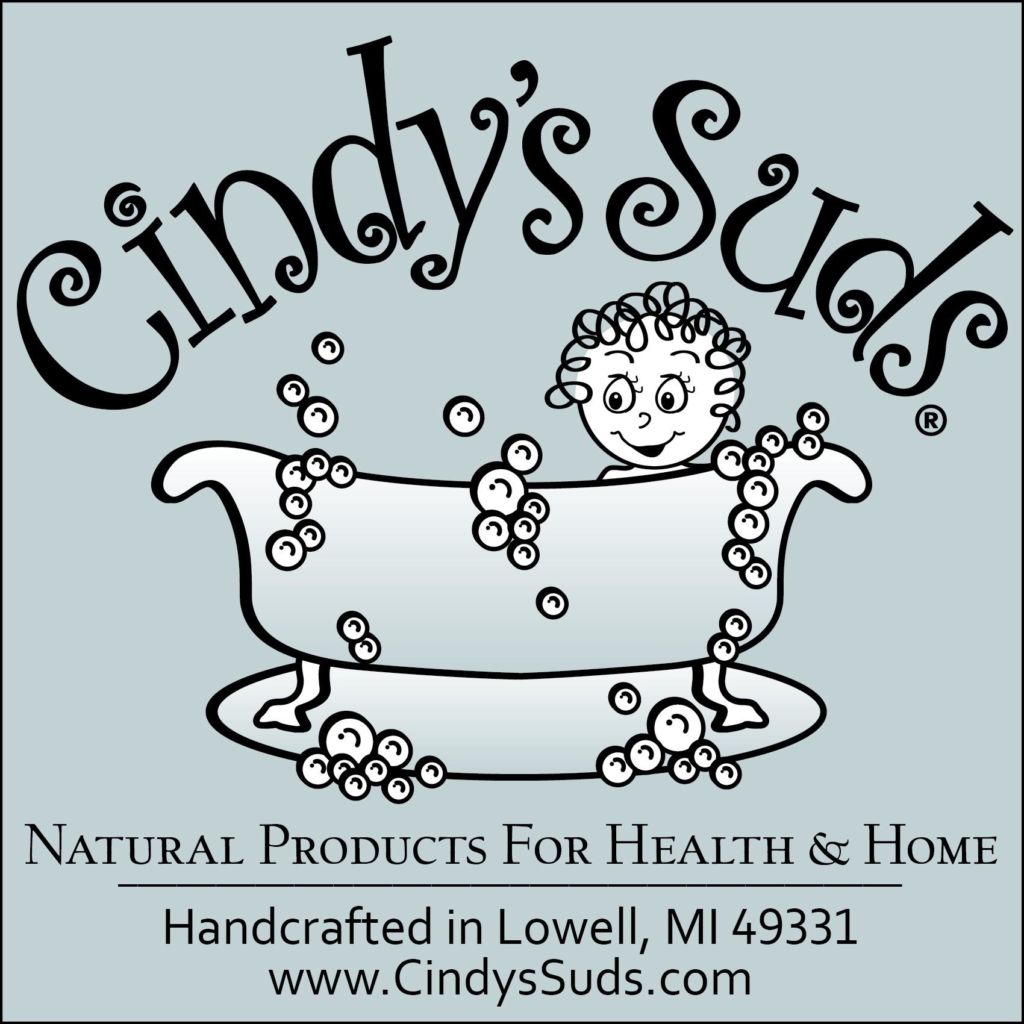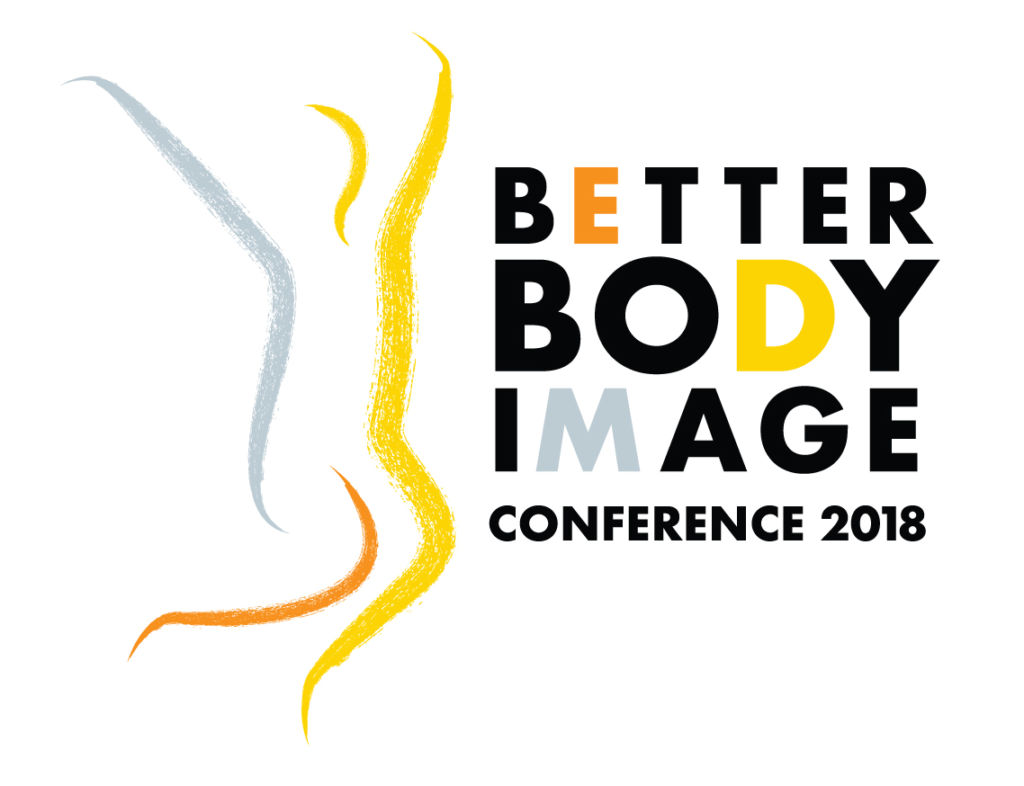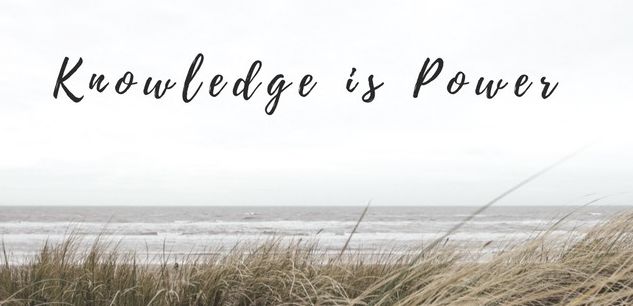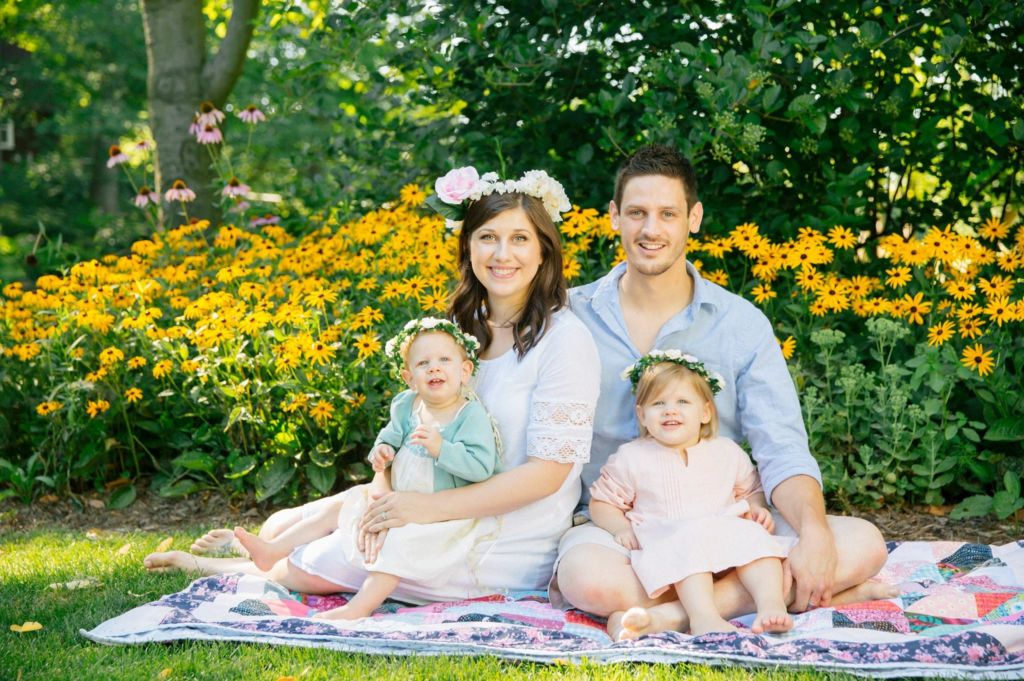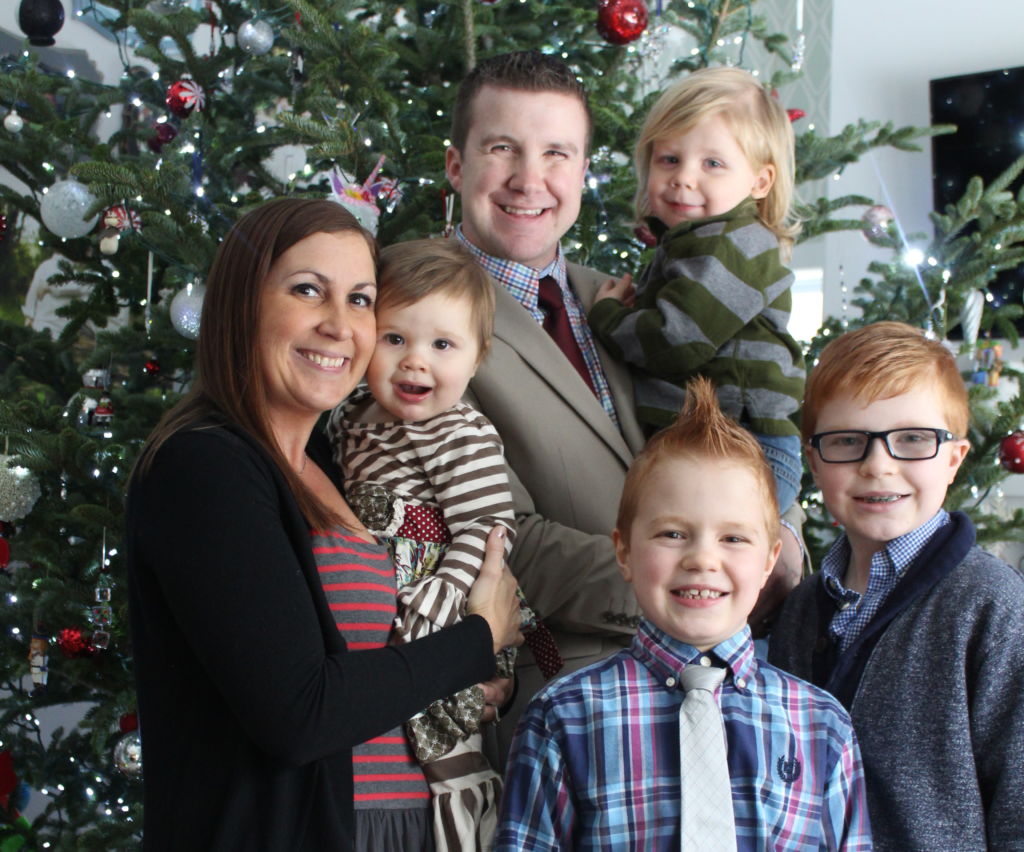In this episode of Ask the Doulas, Alyssa talks with Bri Luginbill and Connie Flachs about the Better Body Image Conference taking place in Grand Rapids, MI on March 11th. This podcast is available to listen to on iTunes and Soundcloud.
Alyssa: Hi, welcome to another episode of Ask the Doulas. I am Alyssa, co-owner and post-partum doula, and today we have Bri Luginbill and Connie Flachs from the Better Body Image Conference with us.
Bri: Hi, everybody.
Connie: Hello.
Alyssa: We’ll let you introduce yourselves in a minute, but Gold Coast is doing something with you guys that’s really cool. It’s your first Better Body Image Conference that you’re holding March 11th at the Wealthy Street Theatre, and we are doing it with you because we are putting a panel together in regards to body image and mothers after pregnancy because your body goes through so many changes. So we’re super excited to do that with you. Can you kind of give us an overview of BBI? When I say BBI, that’s Better Body Image Conference. So can you tell me a little bit about how it got started? Start from the beginning and then let’s explain some details.
Bri: I’m going to let Connie start because this is kind of yours.
Connie: So this is a topic I’ve been really passionate about. In my day job, I’m a dancer for Grand Rapids Ballet, and so I’m consistently looking at my body in the mirror and have gone through ups and downs in my relationship with that and have found a lot of support and resources online or maybe with professionals but have always had a hard time connecting within the community to find some solidarity there, so I wanted to create a space that allowed people to come together and talk about these issues just within a community. So I was thinking about it and was like, it would be so cool. There are documentaries out about this; we could show a documentary and have a panel discussion. Just thinking about this idea, I stumbled across a Facebook page of an event that had happened in Grand Rapids called Go Boldly, Love Your Body. I was like, this is really aligned. I’m going to send a message to this woman who started this and see if she has any tips – and that woman was Bri. So we met for coffee at Lantern and talked a bit, and I told Bri kind of what my idea was, and she was like, yes, that was so awesome. I would love to be involved. Let’s make it bigger.
Bri: Let’s make it an almost all-day thing. And so we met back in November of 2017, so fast forward now, it’s February, and our conference is in March. So we’ve been kind of going really, really –
Alyssa: You’ve been working.
Bri: Yeah, really, really fast to do all the connections and get everything going, but when I had met with Connie, I just really felt that together we could make this something more than just a movie panel and showing. We could have workshops so people are attending something and getting the tools there and actually having an experience during that, as well, and then also having a keynote come in and talk so people are getting inspired. Connie really inspired me because my Go Boldly campaign was in 2014, and then I did little bits here and there, but when she messaged me, it kind of ignited the fire back in me about the issue that I was really passionate about as well, but just in a different way, to be able to bring it in a bigger way to the community than it has ever been before. This will be the first inaugural Better Body Image Conference in Grand Rapids, and we’re so excited about it. We actually have Spectrum as our major partner. We have a bunch of other local businesses that are sponsoring us as well. And obviously Gold Coast Doulas; we had reached out to you to do one of our very own workshops that does focus on the body post-partum for mothers. But there are so many other ones, as well.
Alyssa: So tell me. I know it’s from 12:00 to 6:00 and Gold Coast has a workshop at 2:00. What happens when somebody signs up – what does the day look like from 12:00 to 6:00?
Bri: So someone signs up and they decide, okay, I want to attend the whole day, which like Alyssa said, will be 12:00 to 6:00. They can come in as early as 11:30. We’ll have coffee; they can talk; they can just kind of relax into the day. We register them, and we see their tickets and make sure that everything’s all there. And so tickets for the keynote as well as the movie are completely free, so we try to make that really accessible to all, and so they come in, they go to the keynote from 12:00 to 1:00. There’s a space from 1:00 to 2:00 before the workshops to just kind of, after the keynote, connect with people or if you want to go grab something to eat that’s a little bit more than the snacks that we will provide, there’s a lot of local places around that you can do that in. Then people will come back for the workshops from 2:00 to 2:45. There’s three workshops each time slot, so Gold Coast has one of those, and they’ll be in the micro-cinema, so it can house up to 60 people. Then we’ll have one that’s a little more intimate in a conference room. Rachel Steil, actually, from Running in Silence, who went through an eating disorder and published a book about it, will be talking during that one in the conference room, and then we’ll actually have a physical workshop. The one from 2:00 to 2:45 is the one that’s physical. I think that one’s Dana, and that will be in the annex. You do have to walk outside for it, but it’s actually like a little dance studio, so you’ll get to do yoga, but also, it’s about mind and body as well as the physical movements.
Connie: So as an attendee, you pick one of those three in that first time slot, and then you can pick one of the three in the second time slot as well, if you want.
Bri: Yep, and then in the 3:00 to 3:45 range, we have another physical workshop by Jennifer Feldman. And she’ll be doing that in the annex as well, and then we also have another panel discussion by Partners for a Racism-Free Society led by May, and that is about the transgression of mainstream beauty. So it is addressing issues and stigmas found in beauty in other cultures. And then the third one – I’m actually surprised that I’m remembering every single one off the top of my head, but the third one will be in the conference room, and that one’s going to be real food wellness.
Connie: Laura Burkett.
Bri: With Laura Burkett.
Connie: A holistic nutritionist.
Alyssa: That sounds really awesome. Tell us a little bit more about the keynote. Who is she? What is she going to speak about?
Connie: So Elena Rossini – I watched a couple of different body image documentaries, and I came across The Illusionists documentary, which really felt like it connected with what I was dreaming of for this conference, so I contacted the filmmaker, Elena Rossini. And so we talked on the phone, and she said – she makes other movies for her day job, and she was interested in exploring body image, so she traveled to eight different countries and made this documentary about the singular idea of beauty that has kind of spread throughout the entire world and this very narrow, westernized ideal that a lot of people feel pressure to fit. So she’s traveled. She splits her time living between Italy and Paris, and then she’s traveled all over the world talking about this movie she’s made, so she’s spoken at a lot of different universities. She’s given a presentation at Silicon Valley. So we’re really honored that she was willing and interested in coming to Grand Rapids.
Alyssa: Yeah, it’s amazing.
Connie: And she is really passionate and excited, so to hear her story about investigating, making the movie, the process of that, and then also the process of speaking to so many different people about it.
Alyssa: So she speaks from 12:00 to 1:00, and then there’s a time from 1:00 to 2:00. Is she going to talk to people? Will she be available?
Connie: She should be around to network and connect, and I believe she’ll stay for the whole conference, but that hour after her keynote, she’ll be around to answer questions or give more information.
Alyssa: So it’s going to be the keynote; you have an hour to network; you have workshops. And then at 4:00, you screen the movie, correct?
Connie: Yes.
Alyssa: So that is free as well, so people can come see the keynote, and then if they want to come back at 4:00 to watch the documentary, they can.
Connie: Yeah, so basically there are three parts to the day. There’s the keynote, there’s the two workshop sessions, and then there’s the movie. And the only paid thing are the two workshop sessions that are ticketed.
Alyssa: Okay.
Bri: And if you buy just one workshop, it’s $15.00, but if you buy a bundle for two, it’s only $20.00.
Alyssa: So for $20.00, you can come for the whole day and get everything.
Connie: Yeah, and we encourage you to reserve your tickets in advance, even the tickets for the keynote and the movie. They’re free, but that will help us with planning and make sure you have a spot.
Alyssa: And space is still limited. The Wealthy Street Theatre, the main theater, has a lot of room, but especially for the workshops, they’re going to be pretty limited in space.
Bri: Yeah, I think Wealthy Theatre can seat up to 400, so for the keynote and the movie, we can have up to 400, but the other ones, yeah, I think the max is 60 in one of the rooms.
Alyssa: So for interested people, how do they find you and how do they register?
Connie: So you can go to our website. It’s www.betterbodyimageconference.com. And then you actually can click Reserve Your Ticket. It’s one of the pages, and there’s just three big buttons, and you can click either button to reserve whether you want to go to the keynote, the movie, or a workshop. It will direct you to our Brown Paper Tickets link, and then you’ll reserve your space. And for us, we’ll get to know that you’re coming. It will show us your name, so we have you on the list. So when you do come in, we’ll be like, yep, you have reserved a ticket. Go ahead.
Alyssa: So betterbodyimageconference.com?
Bri: Yep. And we do have Instagram, too.
Connie: You can go on our Facebook, as well, and that will get you to where you need to be, too, if that’s easier to navigate.
Alyssa: And I know we had a link on our Facebook page, as well. I think we had something we posted.
Bri: Yes, yes.
Alyssa: So we’ll try to do that again, too, so people can find it.
Bri: But even just saying “Better Body Image Conference,” even without Grand Rapids, I have seen it pull up pretty well because our website is Better Body Image Conference, so it will be easy to find.
Alyssa: Okay. Anything else anyone needs to know about this conference?
Bri: Know that it’s a safe environment; we’re here to have fun, but also connect and provide people with resources for anyone dealing with body image issues or anyone that just is curious as to what’s going on and is passionate about this. I know that I have had my own in the past, and I mean, my body’s going to always change because we’re always growing older and in different ways, so it’s a consistent thing that I’ll be going through throughout my life, and I feel like being able to be here and see what resources are in the community is just going to be so helpful to me and I feel like to everyone.
Connie: Yeah, I think for me, too. Bri and I are not experts, and I think it’s important to know that we’re not planning this conference because we are experts on this topic. We are planning it because we want all the experts in one place to learn from, so yeah, we’re just the organizers and really excited to bring all these people together that are doing such great work in the community and try to strengthen the Grand Rapids community as a whole.
Alyssa: It sounds like you’ve done an amazing job of gathering a really, really good pool of experts and resources. I think it will be an amazing event. We are really excited and thrilled to be joining you.
Bri: We’re excited to have you.
Connie: Yeah, it’s going to be great.
Alyssa: So yeah, find them online. Check out our Facebook pages, and if you come up with any questions, do you have any email on your website?
Bri: Yes, we do, and if you want to email us directly, besides our Contact Us form, it’s betterbodyimageconference@gmail.com. Things that we are looking for – volunteers. We definitely need volunteers just to help throughout the day just with registration or set up and tear down or just being available if people want to know where a workshop is and they got here a little late or a little early, directing them.
Alyssa: Volunteers are always good at events, right?
Connie: Yeah, and we are also looking for people to share info about the conference, so if this is interesting to you, please pass it on. Share on your social media. And sponsorships are still available if you feel really passionately about this.
Bri: We still have sponsorships. They are platinum through bronze. It ranges anywhere from $150.00 to $1000.00, and we do have, I think, maybe one more platinum sponsorship available just because tables are limited in the Wealthy Theatre, so if you want a table, we only have five spots.
Connie: And all donations are tax-deductible. We’re not a non-profit yet, but we have a fiscal sponsor, Grand Rapids Ballet.
Alyssa: Okay. Well, that’s amazing. We’re excited. Check out their website. Mark your calendars for March 11, and we hope to see you guys there.


